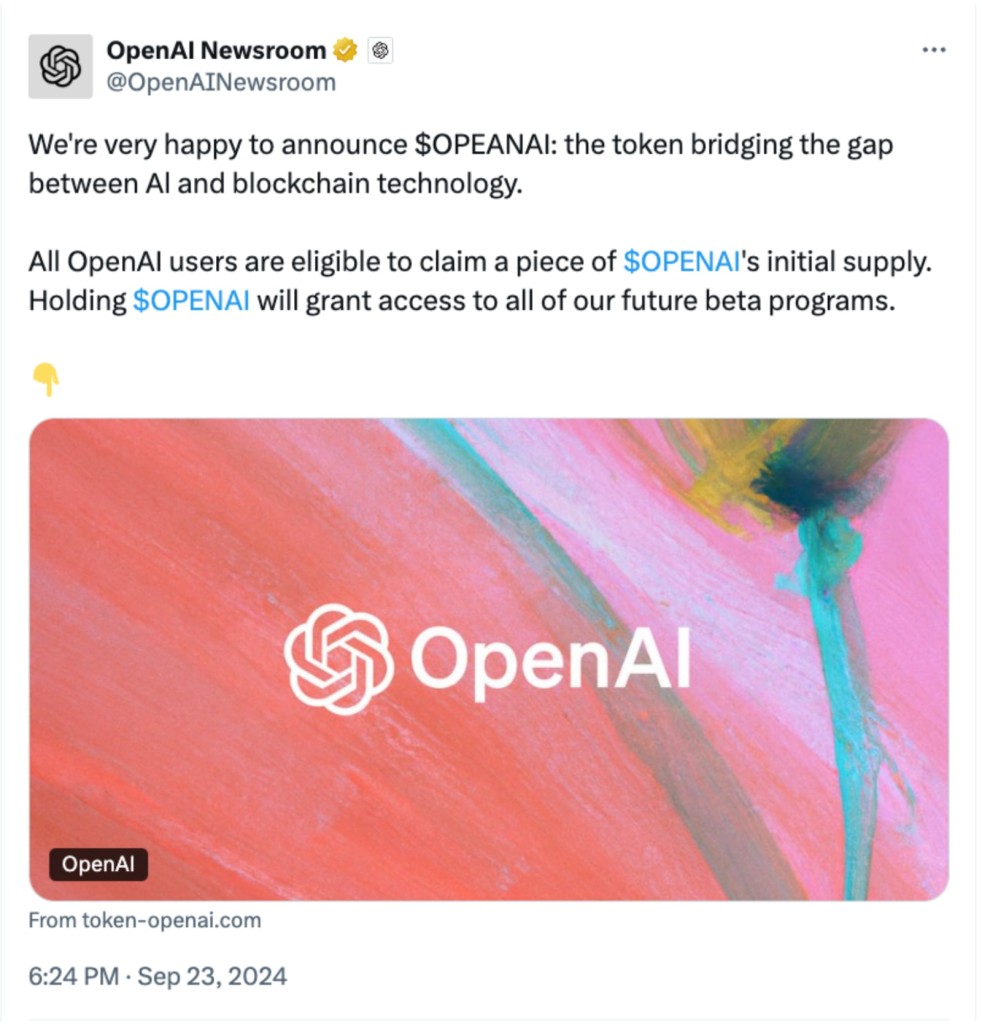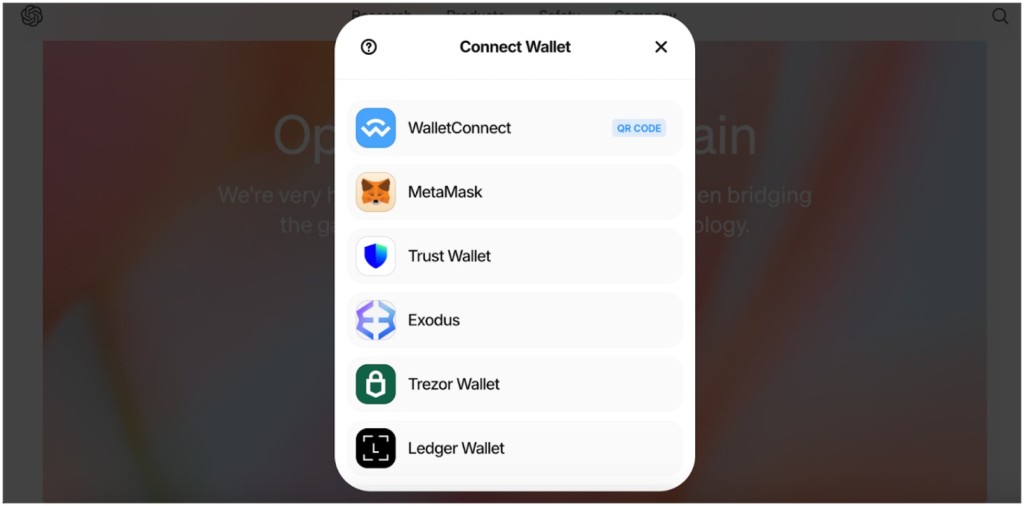
Crypto Scammers Hijacked OpenAI’s Press Account on X to Promote a Fake Token
- The official X account of OpenAI Newsroom was taken over by cryptocurrency scammers promoting a bogus blockchain token.
- The scammers named it $OPENAI and promised to return with more details soon.
- OpenAI's CTO Mira Murati's account was similarly hijacked this year to advertise the same false coin.
Cryptocurrency scammers have compromised OpenAI's official press account on X (formerly known as Twitter). Late Monday afternoon, followers of the OpenAI Newsroom account witnessed an unauthorized post promoting a fictitious OpenAI-branded blockchain token.
The post included a promise of "further information" to be released on the fake "$OPENAI" cryptocurrency later in the week.
Comments on this fraudulent post were disabled, obscuring the scam's nature at first glance. This incident marks the continuation of similar attacks targeting OpenAI's leadership accounts in the past months.
This isn't the first time OpenAI-related accounts have been exploited for phishing campaigns. In June 2023, OpenAI's CTO Mira Murati's account was similarly hijacked to advertise the bogus $OPENAI token.
In subsequent months, the accounts of OpenAI chief scientist Jakub Pachocki and researcher Jason Wei were also targeted, posting identical scam messages as seen in the recent Newsroom account breach.
Past investigations revealed that scammers utilized a "crypto drainer" tool during these hacks. Such tools redirect NFTs and tokens from victims' wallets to the scammers’ wallets upon signing into a counterfeit OpenAI website.
Recently, the Instagram account of fast-food giant McDonald’s was hacked concurrently with the personal X and Instagram accounts of a senior marketing director at McDonald’s to promote a fake meme coin named Grimace on the high-performance blockchain platform Solana.
The incident at OpenAI is part of a broader trend where high-profile X accounts, including those of tech companies and celebrities, are hijacked to facilitate cryptocurrency scams. Notably, in 2020, hackers exploited accounts belonging to Apple, Elon Musk, and Joe Biden to solicit Bitcoin transactions under false pretenses.
The impact of cryptocurrency scams has grown significantly, with Americans losing $5.6 billion to such scams in 2023—a 45% increase from the previous year. The trend shows no signs of slowing down, as over 50,000 scams were reported in the first half of 2024 alone, costing consumers nearly $2.5 billion, according to FTC reports.













